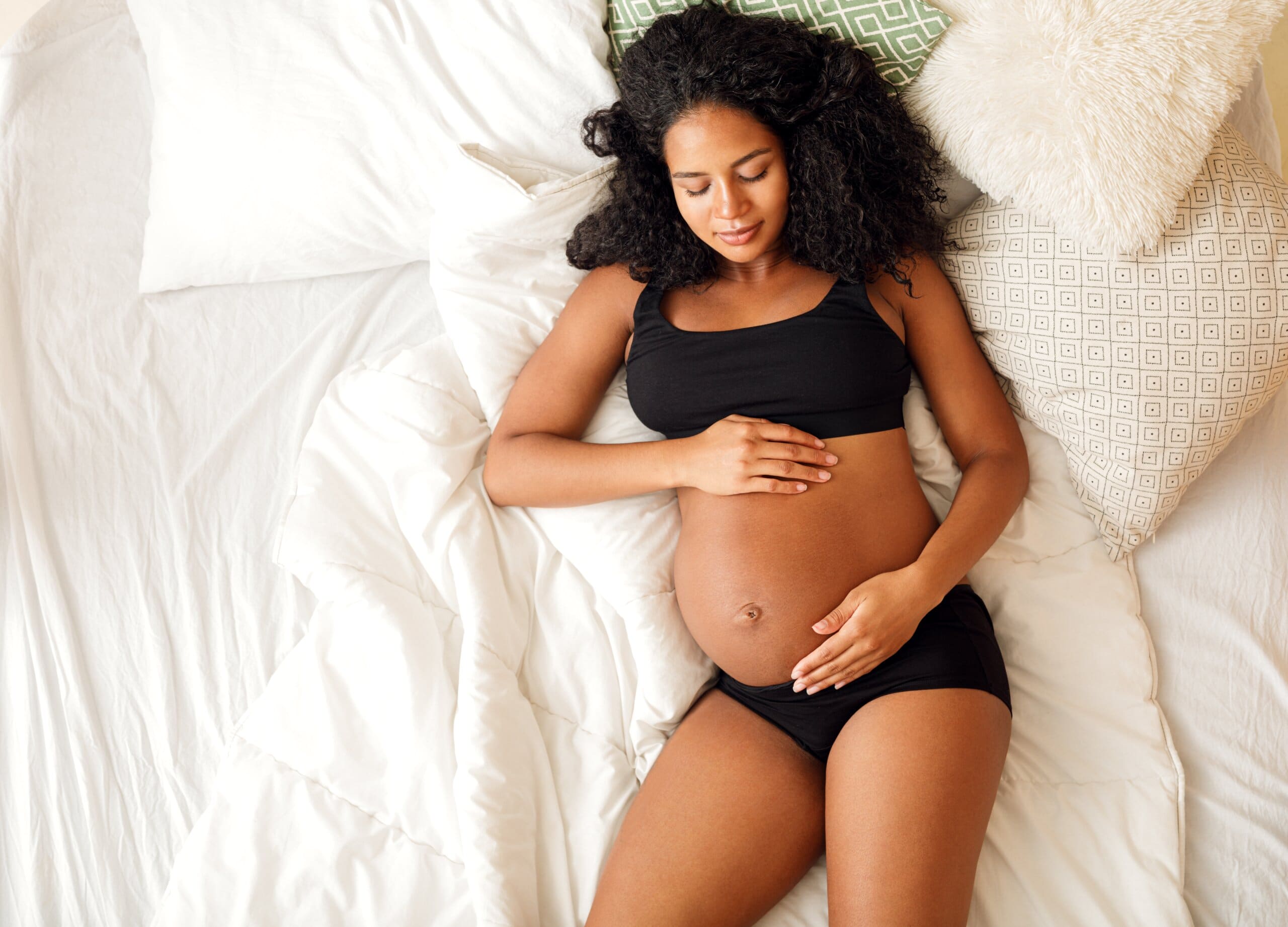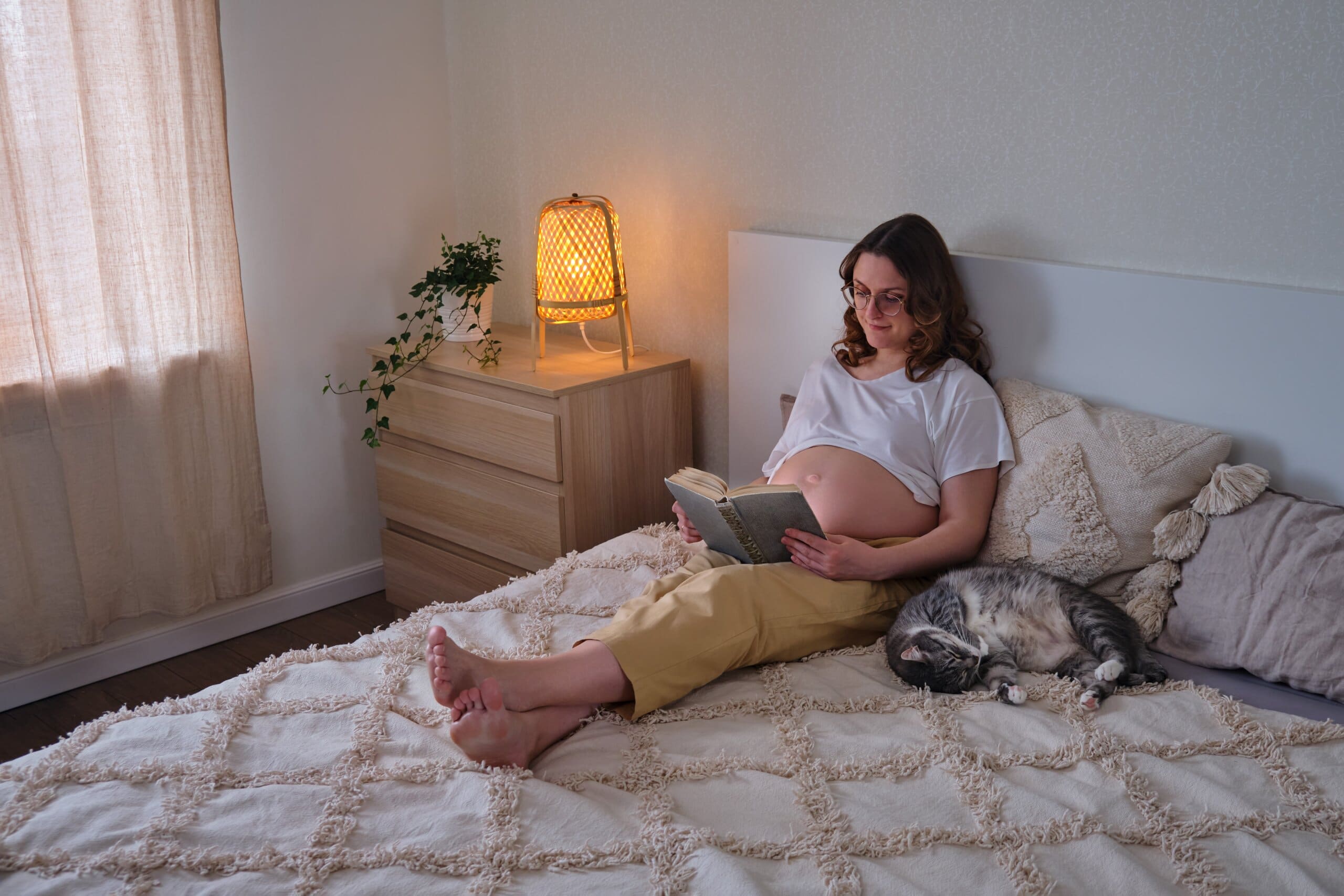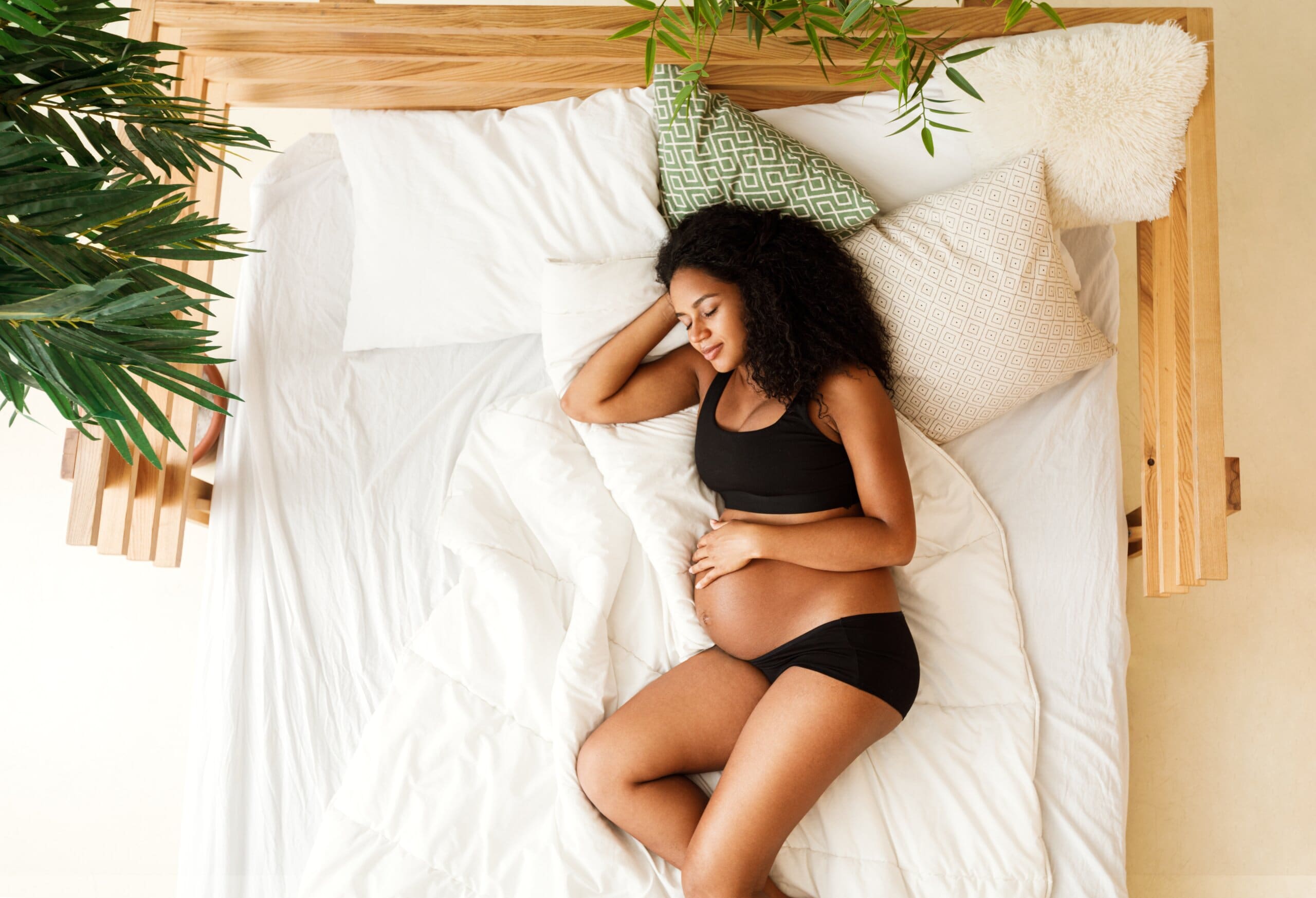If there’s one thing that’s crucial for a mum-to-be, it’s a good night’s sleep. But learning how to sleep when pregnant so that you get the best night’s rest possible can be challenging, especially in the final trimester.
The right mattress can help enormously. As can additional comfort providers such as memory foam pillows and softer mattress toppers. Here are some top tips to help you get a better night’s sleep when pregnant.
What side should you sleep on when pregnant?
If you’re in the very early stages of pregnancy, it doesn’t really matter too much which side you sleep on. However, as you advance through your pregnancy, the general advice is to sleep on the left side. This helps nutrients to flow easily to your baby, to ensure your blood circulation is good. And, to enable your kidneys to get rid of waste and fluids more efficiently.
If you Google ‘Can a pregnant woman sleep on her back’, the general answer you’ll get is that it’s fine to do so during the first trimester. But you should try to avoid doing it for long periods.
During the second trimester, the bump will be more pronounced. So, you won’t be able to comfortably sleep on your stomach (it’s also not recommended as it puts pressure on your womb and the baby). At this stage, a softer mattress and supportive cushions will help you find that comfortable ‘sweet spot’.
Need a new mattress? Read our handy guide on the best mattresses for side sleepers.

Top tips for sleeping while pregnant
Apart from sorting out your sleeping arrangements by adding a mattress topper or extra pillows, there are various other things you can do to help make things more comfortable at night.
1. Maintain a regular sleep routine
Life is about to get very irregular, so keeping a regular sleep cycle before the baby arrives is vitally important to your well-being and health. Prioritise your sleep and make sure you’re going to bed and getting up at the same time every day, including weekends. This will help you feel more energised during the day.
2. Try and do gentle exercise
3. Cut back on drinks before bed
To avoid breaking your sleep cycle with midnight trips to the bathroom, try not to drink too much before you go to bed. Caffeine will keep you awake. So, restrict drinks like coffee, tea and fizzy drinks to the morning and afternoon. Herbal tea such as chamomile may help you drift off easier. But check with your doctor first before you use any herbal remedies such as teas. This is especially important in the later stages of your pregnancy.
4. Try and sleep on your left side
5. Use your pillows
As your pregnancy progresses, you’ll find that pillows are more and more important to create a comfortable sleeping environment. They will also give you some additional support. A pillow between your knees and under your belly will relieve pressure points. It should help you stay in a comfortable position for longer.
6. Avoid spicy food before bed
7. Make sure you relax during the day where possible
You’re going through monumental physical and psychological changes during pregnancy, so you need to be kind to yourself. That includes giving yourself plenty of time to relax and unwind throughout the day. If you feel tired, take a nap. Both you and the baby will benefit from a stress-free pregnancy.

What are the best pillows when you're pregnant?
You need both comfort and support, and you may find that memory foam pillows offer the best of all options. The hormonal changes in the body during pregnancy mean that some women can feel overly hot at night.
A memory foam pillow with a cooling layer such as the Coolflex Hybrid ICE Cool Gel Memory Foam Pillow may be just what you need to stay comfortable during the night.
A slim pillow popped underneath your bump will help to support your belly in the last trimester. Or placed between the legs, it can help align your spine and eliminate pressure points on your hips. The Emma® Premium Microfibre Pillow is an ideal choice as an extra layer of support.
If you suffer from allergies, the last thing you need is a trigger during the night when you’ve finally managed to drift off. Hypoallergenic pillows such as the Silentnight Anti Allergy Pillows are a practical and comfortable choice.
And finally, if you want something to support your body while you sleep, the Simba Hybrid Pillow is a brilliant choice. It's filled with breathable Nanocubes® that you can add or remove to create the ideal height and density. This pillow can easily be adjusted for any stage of your pregnancy, whether you need it slightly flatter to just support your lower back, or big and plump to tuck between your legs. For more information, have a read of our guide to choosing the right pillows for you.


What is the best mattress for pregnancy?
Your mattress matters. If you’re not comfortable, it’s impossible to get a good night’s sleep with the support and comfort you need.
There are two main types of mattress to choose from – a spring mattress or a memory foam mattress. Within those two groups are a variety of different types.
You also have options such as latex mattresses or hybrid versions that combine both memory foam layers and sprung cores. It will depend on your personal preference and what type of mattress you find most comfortable.
However, bear in mind that you may find a slightly softer option more comfortable. So if you’ve been sleeping on a firm or orthopaedic mattress, going to a medium option may provide you with a little more comfort.
For more information, read up on our tips for the best mattress for pregnancy.
Can a memory foam mattress help when sleeping pregnant?
Yes, as it cushions and moulds to the shape of your body. A memory foam mattress can be particularly comfortable for pregnant women. More so in the later months when the bump is more pronounced.
Memory foam provides equal weight distribution too, which can take a lot of pressure off your body. They also minimise movement transference. So, if your partner is a particularly restless sleeper, a memory foam mattress will cut down the amount of movement you feel through the bed. This will lead to a more restful, peaceful night’s sleep.
Should you get a mattress topper to help you sleep?
If you don’t want to invest in a new mattress (or you’ve already bought one recently), a mattress topper may be the answer. This will give you a slightly softer feel. But without the outlay of a new mattress. It can also be removed once you’ve given birth and want to go back to your old mattress.
A memory foam option such as the Silentnight Impress Memory Foam Mattress topper is a practical option. It gives you support and cushioning, as well as minimising any movement transference. A thicker option can also help ease those aches and pains in the last few weeks of pregnancy.



